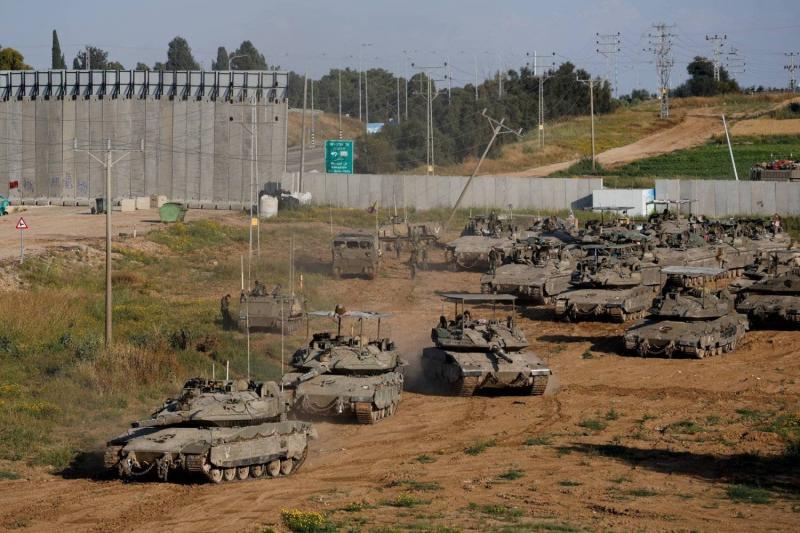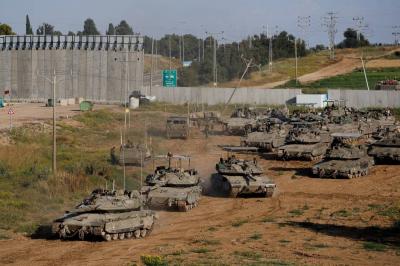Media sources accompanying U.S. presidential envoy Amos Hochstein reported that he was reluctant to visit Beirut recently, knowing that the outcome of the visit was predetermined. However, senior advisors at the White House and the U.S. State Department advised him to make a brief trip to Lebanon, not to achieve a breakthrough in positions or to end the bloody battles in southern Lebanon, but to communicate and contain confrontations within the current framework until the Gaza war concludes, and to prepare to sit at a negotiation table that redraws the region and redistributes influence among regional states.
A Lebanese friend of the U.S. envoy conveyed his conviction that linking Hezbollah's clashes with Israel to the situation in Gaza, disrupting the presidential elections, and the rest of the state institutions would inevitably lead to Lebanon not being invited to the upcoming negotiations, sooner or later. The country's fate and future would be determined by influential countries on behalf of the local populace.
During his last visit to Lebanon, Hochstein presented an offer to Hezbollah through Speaker of the Parliament Nabih Berri suggesting that the party act as a mediator with Hamas to accept U.S. President Joe Biden's proposal for a cease-fire, with the U.S. applying pressure to prevent military escalation by Israel in Lebanon. Berri rejected the offer, despite it being an implicit U.S. acknowledgment of Hezbollah. He is fully aware that the decision ultimately rests with Iran, and any mediation with Hamas must inevitably go through Tehran. Berri responded to Hochstein that if there is pressure to be exerted by the U.S., it should be on Israel to halt its operations, after which there would be no need for mediation with Hamas. Hochstein replied that this was the response he anticipated, expressing regret for the escalating events that would not be in Lebanon's interest.
As soon as Hochstein's plane departed from Beirut airport, Israeli war drones bombed the outskirts of the cities and villages of Tyre, Aita al-Chaab, and Deir Mimmas, resulting in several casualties and injuries, and setting ablaze large agricultural areas in southern Lebanon. Citizens called for help to extinguish the fires that broke out in century-old olive orchards. Hezbollah responded to the Israeli brutality by leaking a video purportedly captured by the "Hedgehog" drone, showing the port of Haifa and other areas identified as very important military centers. In a eulogy for a senior Hezbollah leader (Abu Taleb) assassinated by Israel with his companions in the southern town of Jayy, Secretary-General Hassan Nasrallah stated, "What the Hedgehog has shown will be in the crosshairs of the party," and threatened Cyprus with dire consequences if it supported Israel in any aggressive action against Lebanon. Cyprus and the European Union condemned this threat, exacerbating Lebanon's international isolation as it undergoes the most severe economic and financial crisis, requiring openness and cooperation with the world rather than closure and isolation; Nasrallah's nerves frayed, plunging Lebanon into turmoil.
It has become apparent that Lebanon has turned into an open playground for Iran, exploited at will to secure gains from the United States, with little regard for Lebanese lives, land, and wealth. The small country’s isolation from the international community is of no concern as long as Iranian interests are served.
But what if war breaks out in Lebanon? The losses would undoubtedly be catastrophic for a country already facing financial peril. A recent report from the Policy Initiative Research Center based in Beirut warned that war would cost Lebanon approximately $7.7 billion annually, even as its GDP dwindles to $16 billion. Hezbollah's escalating provocations are bringing Lebanon to the brink of what could be a larger escalation, one with devastating consequences for Lebanon and the entire region. Israel knows its duty is to defend its people, but the question remains: who will defend the people of Lebanon?
As for Hochstein and his mission, Israeli media reports indicated that he appeared "more concerned" that the current near-daily exchanges of fire could lead to a full-scale war, resulting in tremendous devastation on both sides of the border. Speaking in Beirut, he noted, "The conflict between Israel and Hezbollah has persisted long enough," adding, "It is in everyone's interest to resolve it quickly and diplomatically – this is achievable and urgent."
Therefore, intensive diplomatic efforts may exert enough pressure on Hezbollah to agree to a cease-fire, especially if the fighting in Gaza stops. However, peace will not come to southern Lebanon until Hezbollah and its Iranian supporters are removed from Lebanon.




